Hico White Collar Crime Lawyer, West Virginia
Sponsored Law Firm
-
 x
x

Click For More Info:
-
The Law Offices of Richard L. Cooper, P.A.
848 Brickell Avenue Suite 800 Miami, FL 33131» view mapDWI/DUI, Drug Trafficking, Felony Nationally Ranked Top 40 Under 40
With Richard L. Cooper you can expect a trusted confidant who will work diligently to fully understand your case and determine a road map to help you regain control of your life.
800-756-2781
Not enough matches for Hico White Collar Crime lawyer.
Below are all Hico Criminal lawyers.
Jody D. Wooton
✓ VERIFIEDJody's intrigue with the legal system began about the time he was becoming a teenager. He vividly recalls observing his father and uncle working to es... (more)
Ronald N. Walters
✓ VERIFIEDRon has, over the last decade, assisted clients by planning and designing settlements to address future needs and ensure any government benefits are p... (more)
Claude S. Smith, III
✓ VERIFIEDWhether you have suffered an accident while on the job or suffered an injury during a car accident or semi truck accident, The Law Offices of Claude S... (more)
FREE CONSULTATION
CONTACT
 Richard L. Cooper Miami, FL
Richard L. Cooper Miami, FL AboutMiami Attorney at Law
AboutMiami Attorney at Law ServicesCriminal Defense
ServicesCriminal Defense



